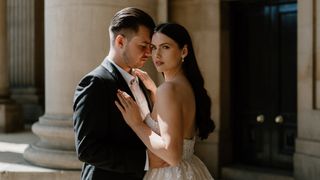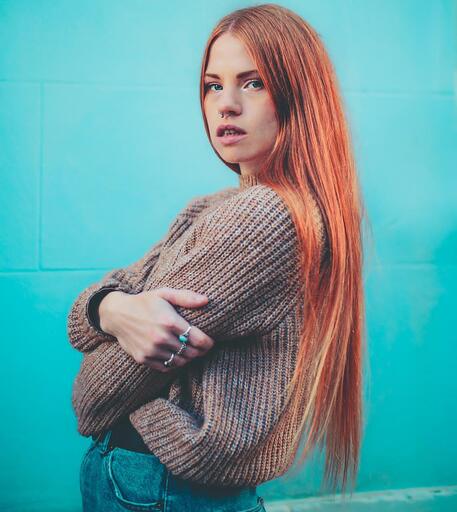If you’ve ever shot a wedding, you’ll understand just how stressful they can be. More often than not you start early and finish late, and there are no second chances when it comes to certain shots.
As well as making sure that you’ve ticked everything off your shot list you’ll also have to organize people, make sure your kit is working, and deal with any issues that arise.
• These are the best cameras for wedding photography
Rebecca Kerr and Laura Adams have more than ten years of experience shooting weddings, and during that time they’ve learned a lot when it comes to the do's and don’ts.
Although the pair have different photography styles, the way in which they go about the day has some similarities – and they shared the three more important rules with Hiscox, who provide insurance for photography businesses.
1) Effective communication
Before the big day arrives, there needs to be an in-depth conversation about what is expected of you. As Laura notes, "Many couples say 'I trust you' and 'We're leaving the pictures in your hands' but this means you really need to understand exactly what photos the couple is expecting to sell. If you miss some key moments, you could have an unhappy couple on your hands."
By asking the right questions, Laura is able to ascertain what shots are most important and which to include in the final gallery. Rebecca also adds how important it is to get to know the couple.
"When my couple is comfortable with me, I'm able to be far more creative and create better images… Ask all the logistical questions beforehand so that you don’t have to constantly be asking what's coming up next, when's the cake being cut, who needs to be in the group photos, etc.
"By making note of the timetable for the day, you can keep referring back to it ensuring you don't miss anything and the bride and groom can fully enjoy the day without worrying about the photography."

2) Navigate expectations
One of the issues with social media is it gives people unrealistic expectations of how life looks – and that extends to weddings. The hashtag #perfectwedding has gained more than 250,000 images so, when they start hunting for a wedding photographer, people often already have an idea of how they want the final images to look.
Rebecca points out that more and more people are expecting their weddings to look like the ones you see on Instagram or Pinterest. "They want the aesthetic to be just right for the ceremony and reception, but also put a lot of pressure on themselves too."
Since so many people take photos of themselves using filters that make their skin appear airbrushed or their face shape more 'defined', Rebecca points out that sometimes people aren't used to seeing what they look like when edited by a professional photographer.
Unlike filters, which can completely change how you look, Rebecca prefers to keep retouching to a minimum so the photos look natural – but she will of course remove rogue hairs and spots.
Over the last three years, the wedding photography landscape has changed significantly. "Since COVID, couples are really embracing the kinds of weddings they want within the budget they want to spend," Laura points out.
This means traditional wedding photography is making room for more creative shots that are unique to the couple and tell a story. "It’s no longer a staged arena – wedding days are full of life, connection and possibility for the future ahead!"

3) Expect the unexpected
Even the best-laid plans can go wrong, whether it unexpectedly rains, a battery charger stops working or a memory card corrupts. For this reason, it’s always a good idea to have spares! The best professional cameras have dual card slots, so you can save all your photos to two cards just in case the worst does happen.
Early on in Rebecca's career, she was working at a wedding as a second shooter. When the day was over she handed one of the memory cards to the main photographer to edit, but unfortunately it was misplaced. While Rebecca thought disaster had been avoided, as she had a backup of the photos on her second memory card, when she plugged it in she discovered it was blank.
"I [learned] that you need to set up dual recording specifically. It didn't just automatically happen when you inserted a second memory card." You can configure the dual slots to shoot in several different ways, either by saving to both cards or you could save RAW images to one and JPEGs to another – so it’s good to check how you have it set up!
Laura offers another really good bit of advice, which is to shoot with two cameras. Most wedding photographers do this not only so they can quickly change between lens setups, but just in case one malfunctions. The same goes for flashes – there's nothing worse than having to run around trying to find replacement kit if yours isn't playing ball.
Wedding photography can be stressful, but it can also be really fun and sociable. So long as you plan well, prepare for the worst-case scenario and follow these wise tips, there is little margin for error.
The best lenses for wedding photography will help you get the shots you need, and the best flashguns and strobes are perfect for catching moments in low light conditions. Check out more wedding photography tips.


